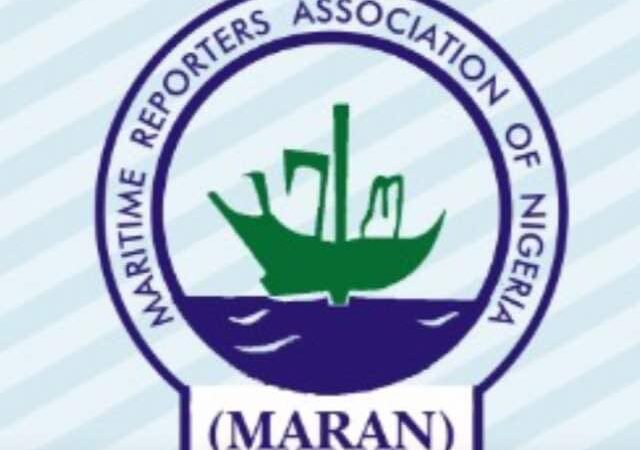It has become pertinent to place on record, yet again, that the proposed Nigeria Water Resources Bill has not introduced significantly new items to the already existing and operational Water Laws in Nigeria.
The Bill before the National Assembly is simply an amalgamation of already existing Water Resources laws that are presently being used to develop and manage Nigeria’s Water Resources as contained in the following:
● Water Resources Act, Cap W2LFN 2004.
●The River Basin Development Authority Act, Cap R9LFN 2004.
●The Nigerian Hydrological Services Agency (Establishment) Act, Cap N1100A, LFN 2004.
●National Water Resources Institute Act,Cap N83LFN 2004.
These laws are being re-enacted with necessary modifications to bring them in line with current global trends and best practices in Integrated Water Resources Management (IWRM).
The purpose of the National Water Bill is to establish a regulatory framework for the Water Resources Sector in Nigeria through the provision of equitable and sustainable development, management, use and conservation of Nigeria’s surface and ground water.
The overall objective of this amalgamation is for efficient management of the Water Resources Sector for the Economic Development of Nigeria and wellbeing of its citizens to ensure that the nation’s interstate water resources are protected, used, developed, conserved, and managed in ways which take into account amongst other factors: (a) citizens’ right of access to safe water and basic sanitation; (b) meeting the basic human needs of present and future generations; (c) promoting equitable and affordable access to water and reducing poverty; (d) adopting hydrological boundaries as the basic units for water resources management; (e) protecting the water environment for sustainability of the resources and protection of aquatic ecosystems, and recognizing the polluter pays principle; (f) providing for existing customary uses of water and avoidance of harm to other water users; (g) promoting efficiency in the management of Water Resources of the country.
The Bill provides for professional and efficient management of all surface and ground water for the use of all Nigerians such as Domestic and non-Domestic use, Irrigation, Agricultural purposes, Generation of Hydroelectric Energy, Navigation, Fisheries and Recreation.
It will no doubt ensure that the Nation’s Water Resources are protected, used, developed, conserved, and managed in a sustainable manner for the benefits of all Nigerians.
Among other benefits, the Bill provides for the creation of an enabling environment of public and private sector investment, capacity building processes to foster good governance, establishes water uses and licensing framework to ensure sustainable financing for water sector development for tariffs.
Sadly, the Bill has generated so much controversy and one of the reasons for such is that many of those criticizing the Bill have not even seen the contents nor read its provisions.
The group of those opposing the Bill depend on second hand information to draw their conclusions.
Critics have accused the Federal Government of having a hidden agenda by pursuing the bill, some have termed it a call to anarchy, others have said it is a RUGA Agenda and a land grabbing ploy to favour herders.
Some of those who have read it have done so superficially through the arguments of critics without clearing any misgivings by asking well intended questions.
The Honourable Minister of Water Resources, Engr Suleiman H. Adamu has said “I am convinced beyond any doubt that the National Water Resources Bill is relevant and appropriate for Nigeria given the fact that more than 80 percent of the nations around the world have subscribed to the concept of Integrated Water Resources Management (IWRM), which seeks to promote citizens’ rights, eliminate hindrances to the management of water as an economic resource and help to empower the people.” The IWRM is a globally acceptable one and can easily be researched to ascertain its merits in Water Resources development and management.
The Water Bill is conceived in good faith and there is nothing sinister about it and has no intention to usurp the powers of states governments, communities and individuals as widely insinuated by some sections of the country as the power to allocate land for any water related project under the Bill is still vested on the Governors of the respective states in Nigeria.
Interestingly, it is not the intention of government to take over licensing and commercializing the use of water. This is not the intention, because the current Water Resources Acts (2004) (made pursuant to the constitution) already made provision for this.This Bill is only trying to provide a more efficient framework for implementing that provision for necessary developmental purposes. Place these provisions side by side with the existing Water Resources Act 2004, that has been in force for more than 30 years now and it will be seen that there is no radical difference in words and spirit.
To address some of the challenges of irrigation management and improvement of water supply delivery, the Bill further makes provision for farmer participation in maintenance of irrigation infrastructure as well as a WASH Fund to support States of the Federation in meeting financial investment in Water, Sanitation and Hygiene projects.
All the arguments against this Bill are therefore either from a misinformed position or a sinister effort to continue to mislead Nigerians for political reasons.
The process of drafting the Bill started in 2004. A final draft was ready in 2008 after a consultative Road Show across the country. No further action was taken on the Bill ostensibly because previous Administrations did not accord priority to our Water Resources.
It is in the effort to strengthen the Water Resources sector for more efficient service delivery that this Administration promotes passage of the Bill, fully convinced that it caters for all that is needed in this regard. The Bill therefore was presented and endorsed by the National Council on Water Resources in May 2016, approved by the Federal Executive Council in September 2016 and went through a Public Hearing and was passed by the House of Representatives in November 2017. Concerns were raised by the Senate in 2018, which were appropriately addressed following which the Bill was returned to the 9th National Assembly in 2021.
It is important to also state here that the Bill was subjected to a further review within the last one year, after due consultation with Nigerian Governors’ Forum and this latest version of the Bill before the House of Representatives has fully addressed their observations.
It is ironic that most of those criticising the Bill are the ones most benefitting from custodianship of the Water Resources of the country already vested on the Federal Government by the Constitution and the existing Water Resources Act.
It serves the interest of everybody for these antagonists of the Bill to fully study the Constitution, the draft Bill and the existing Water sector legislations.
This Bill seeks to reinforce citizens right to water, promote citizens participation in water resources development, ensure sustainable water resources management, protection of the ecosystem, attract investment and establish a funding mechanism for water supply, Sanitation and Hygiene services to better the lot of Nigerians. Because it suits the not so altruistic agenda of some interests these benefits are never mentioned.
It is a sad commentary that at a time when Nigerians are seeking for improved service delivery in the water sector, the very policies and reforms required to achieve progress are being undermined by some unpatriotic people because of cheap politics. They should not be allowed to succeed.
Source: Federal Ministry of Water Resources






